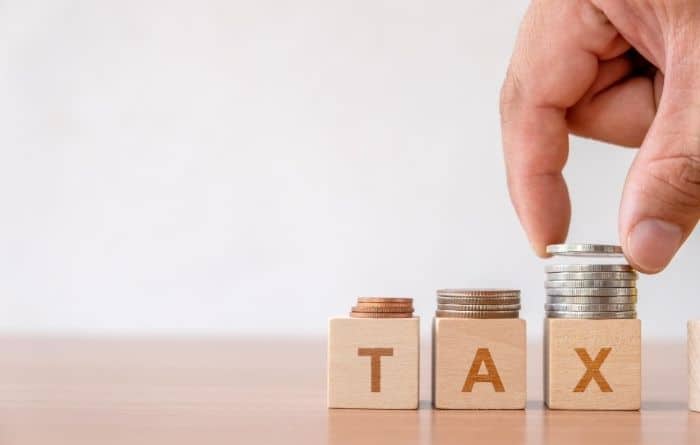2020 Tax Changes in Singapore to Look Forward to
On February 18th, 2020, Heng Swee Keat, the Finance minister of Singapore as well as the Deputy Prime Minister of the country, presented the Singapore Budget for 2020 with the perspective of the continuing COVID-19 epidemic, along with environmental instability.
In this respect, 2020 tax changes seek to address the imminent risks of the COVID-19 outbreak. It also formulates a comprehensive financial strategy. These strategies enable Singapore to take advantage of emerging prospects in the face of short-term uncertainty and longer-term systemic adjustments. They are essential for all the budding entrepreneurs for their promising entrepreneurial careers.
However, the Singapore government has not made any drastic changes in the tax budget in 2020. It is because the government believes that the existing tax policies and practices are progressive. It is also based on the needs of the industry.
2020 Tax Changes at a Glance
- A business would benefit from immediate tax incentives to help balance and create jobs.
- An automatic business income tax refund of 25 per cent is for YA 2020 at S$15,000.
- Improvement in the YA 2020 carry-back relief scheme
- Improved relaxation for YA 2021 Factory & Industrial equipment, Renovation & Refurbishment.
- As of now, there are no immediate changes to the GST taxation policy. However, during imports and exports, companies will face some obligations due to GST.
- A 7% to 9% GST increase will not take place in 2021, but the hike can be expected by 2025.
- Main improvements beginning 2020: GST on utilities purchased from outside Singapore i.e. imports and on digital or online transactions.
- Extension of the M&A scheme up to December 31st, 2025 with limitations.
- Lapse over the stamp duty for operations undertaken on or April 1, 2020
- Exemptions over the purchases completed on April 1, 2020, or after available to overseas investment firms of Singapore subsidiary companies will expire.
- To ensure competition and support the investment capital sector, tax incentive schemes will be expanded, improved, or optimized.
- Exemption of ‘safe harbour’ for selling shares of common stock has got approved for an extension until December 31, 2027.
- Extended and improved taxation opportunities for investment capital firms as well as capital providing businesses by providing tax incentives.
- Added tax benefits, with extension, enhancement, and refinement for diverse sectors. These will include insurance and maritime companies and other financial markets.
Corporate Tax Benefit Worth 25%
During the YA 2020, 25% reimbursement will be capped at S$15,000 per company. It is to promote primarily SMEs as well as those with mild to moderate working capital issues and cash flow problems.
Improved YA 2020 Carry-Back Relief Scheme
It has been introduced in the 2020 tax changes to support local firms to deal with their regular financial issues. It is particularly the cash flow and cyclical downturns. This relief model was built in the budget of 2005 to enable entrepreneurs to carry back their residual cash flows as well as trade setbacks (qualifying deductions) back to the corresponding processing year, which is deductible from the past YA’s obtainable profits. This compensation is up to S$100,000.
The policy is modified for some time and more details will be released soon. With this, the eligible YA 20 deductions will be rolled back to a maximum of 3 immediately previous Year of Assessments, with a limit amount of S$100,000.
Improved Relaxation for YA 2021 Factory & Industrial Equipment
There are many other possibilities open to organizations to control financial inflows and outflows. Industries who have spent their resources in purchasing plant & machinery goods and services in the 2012 YA base year would have the ability to write-off the tax rebate. This comes at the expense of purchasing these machineries over two years.
Additionally, the defined operating period of the P&M should be simplified to ease capital allocation statements for businesses. In addition, companies that have used their capital on renovation & refurbishment expenditures during the YA 2021 base cycle can avail the tax rebate on those expenditures. The maximum benefit of 300,000 S$ will be allowed to each applicable span of 3 succeeding YAs.
No Immediate Changes to the GST Taxation Policy
There are changes in import and export services. Meanwhile, digital transactions will face some obligations due to GST.
During the announcement of the Budget in the year 2018, the government informed that there would be a hike of 7% to 9% on the GST, between 2021 and 2025. This was to meet the continuing financial requirements of the country, especially for the healthcare industry, defence, and primary schools. The Government of Singapore would make the decision when to introduce the raised GST.
Around this stage of implementing GST, the government considered determining the current economic circumstances as well as the current conditions of the organizations.
Upon evaluating the profit and spending estimates of the country this year, the government agreed not to raise GST in 2021. It is to boost economic growth during the pandemic phase which has overall impacted the growth of the country. By 2025, the Government would start to increase GST as expected.
With no major GST announcement this year, however, some changes have been imposed on the following:
GST on Import Services
From January 1, 2020, the Singapore government announced to apply the goods and services tax over the services imported within the country.
Earlier in the 2020 tax changes, only the products and services within Singapore were levied with GST. The government has introduced the new tax process in the country to pay towards GST on the supply of international commodities.
To determine whether the services are procured locally or overseas, a reverse charge mechanism was initiated by the government. This requires the GST-registered businesses in this country to be a supplier and take an account of all the imported goods. This can impact a few businesses such as financial institutions, real estate developers, and mobile wallet companies.
The Government has also established The Oversea Vendor Regime. This is to allow entrepreneurs in Singapore to apply for and pay GST on the global procurement of electronic content. Examples include interactive entertainment downloaded materials such as e-books and apps and online platforms that require user subscriptions such as Netflix. However, there are no significant amendments to the GST provision for electronic sales of products from foreign countries.
Now, GST is levied on products brought in to the nation. Policies to exempt GST on commodities purchased from other countries by travelers across Singapore was implemented in the 2019 budget. Hence, further raising opportunities for buyers to buy products internationally rather than services manufactured locally.
Products shipped into the country by mail or flight under S$400, insurance, or freight will be excluded from the Goods and Services tax. The OECD has been operating since 2015 towards creating an international framework on charging the digital infrastructure.
GST Applied on Online Transactions
Services purchased through digital platforms will not be liable for any charges under the GST scheme from 1st January 2020.
Before the 2020 tax changes, IRAS (Inland Revenue Authority of Singapore) used to charge a tax for the purchases made with digital currency. This means when the person who is into virtual currencies is liable to pay GST and this is applicable upon reaching the S$1 million thresholds. This is nothing but a barter system where if anyone pays for purchases through digital money, then GST will be accounted for selling virtual currencies.
On the other hand, the supplier will be charging taxes for supplying goods and services.
IRAS introduced a guide on the GST Treatment of Electronic Transaction Tokens on November 19, 2019. The authorized body studied the tax implications of digital currencies’ money transfers through cryptocurrency.
On January 1, 2020, suppliers of these currencies will not be liable to pay GST. Alternatively, these will regard as exempted supplies. Singapore is getting more in line with world standards on virtual currency regulation through GST. It also shall follow the GST treatment for supplying foreign currency under the foreign exchange. This also will be treated as an exempt supply. Hence, giving Cryptocurrency a position to be treated as a GST-exempted supply.
Limited Extension of the M&A Scheme
In 2010 the M&A (Merger and Acquisition) policy was launched to promote business consolidation and expansion by M&A. As per the scheme, a Singapore business which makes a valid investment in the company’s share will enjoy the qualifying acquisition. It will also benefit from some of the tax exemptions.
In order to derive these benefits, the purchasing company has to get registered in Singapore. The registering party must be a resident of the country. This is for taxation purposes to be eligible for the M&A program. A similar exemption had already been launched in 2012 for companies with certain eligibility such MNCs. The head office is located in Singapore and was listed under the headquarters tax incentive policy,
The Merger and acquisitions policy to cover eligible purchases completed before or on December 31, 2025, should be applied. There are certain limitations of this scheme which are:
- Relief on stamp tax lapse: Under the M&A schemes, the relaxation over the stamp duty for operations undertaken on or April 1, 2020, or after that will get lapsed.
- MNCs exemptions lapse: MNCs that bought shares from subsidiary companies of Singapore on or before April 1, 2020, will not be eligible for the waiver as they will not be able to fulfil the M&A scheme.
Apart from the changes in the M&S scheme, the current benefits are:
- Companies will get a maximum of S$ 10 million worth benefit under the M&A allowance for all valid purchases in that YA base period.
- Entities buying valid shares costing them a maximum of S$ 100,000 will be applicable to avail the Double Tax Deduction.
Both of the above limitations are to work for the advancement of small and medium-sized industries. Otherwise, the rest of the rules of the M&A policy will remain as they are.
Extending the Exemption of ‘Safe Harbor’
According to the Government of Singapore’s policy, capital gains are not tax levied. Businesses in Singapore will become liable to tax if it has received capital gains by selling equity assets. To determine whether it is capital or income profit, there is an exercise. The government has conducted the exercise on the basis of trade, length of ownership of shares, and the frequency of such similar transactions.
A ‘safe harbour’ tax provision was implemented in the 2012 Budget to offer certainty to the companies which are undergoing corporate restructuring. This helps in giving financial clarity to businesses especially in financial distress situations such as coronavirus pandemic. Under this scheme, profits generated by a corporation by selling normal stocks of investment businesses are exempted from taxation. To apply for the waiver, the entity selling the shares must retain a minimum of 20% of the stock in the creditor business for at least 24 months immediately before the period of disposition of the securities.
Currently, the tax exemptions do not apply to transact the unlisted shares of the company which is into trading or holding immovable properties in Singapore.
The Government will extend the safe harbour clause by around 31st December 2027, to include securities destruction. The above provision will be extended starting June 1, 2022, to include immovable properties located beyond Singapore and also the investment firm that produces such immovable properties. It would maintain consistency in the tax provision of real estate firms. Everything else under this scheme will remain intact.
Tax Benefits for Various Sectors
The government has improved upon the schemes related to tax so that they can refine the country’s tax structure. It has already discussed that the government has put forward the budget 2020 tax changes with very few modifications. The alterations are to ensure that the tax benefit schemes provide fair competition and are business-friendly.
Some of the changes in different sectors include the following:
- Business trading in international Market – Extending the Double Tax Deduction Internationalization (DTDi) policy until December 31, 2025.
- Insurance sector: The Insurance Business Development (IBD) policy is being extended until December 31, 2025.
- Maritime sector: Avail the benefits of the Maritime Business Incentive (MSI) Program until December 31, 2026.
- Finance providing institutions: At present, margin investments are to withhold tax allowance on income. The effectiveness of the items or services protected by withholding exemption has increased.
- Financial Services and Treasury – The policy for Finance and Treasury Centre has got approved for an extension till 31 December 2026. Beginning 19 February 2020, changes involve the widening of the extent of eligible funding outlets and even strengthening the reach of authorized practices effective February 19, 2020.
- Boosting the use of Commercial Land – Government is prolonging the Land Intensification allocation scheme got until December 31, 2025.
- Telecoms Business – The write-down compensation program to obtain an unquestionable privilege to have an external underwater cable network until December 31, 2025.
- The field of R&D – The tax incentive section 14E allowing for more write-offs will get lapsed after March 31, 2020.
- Government or legislative committee funds – To avoid double benefits, beneficiaries getting capital grants on January 1, 2021, or after that can not demand exemptions or bonuses for the portion of the spending supported by these grants from policy or legislative boards.
Conclusion
The 2020 tax changes will reduce the possible market recession and make it possible for firms to handle their financial resources effectively. The budget 2020 also includes steps to maintain the stability and profitability of the company. It is also to help them along with the future challenges which are unseen due to pandemic situations. Extensions and upgrades to projects intended to draw foreign business and local businesses to the country.
To get assistance for the Company Income Tax services, you can arrange a meeting with a representative of the 3E Accounting. They will help you to clear all your doubts about the budget 2020 tax changes. You will also be able to find solutions for availing the tax exemptions for business in the best possible way through their valuable assistance.











